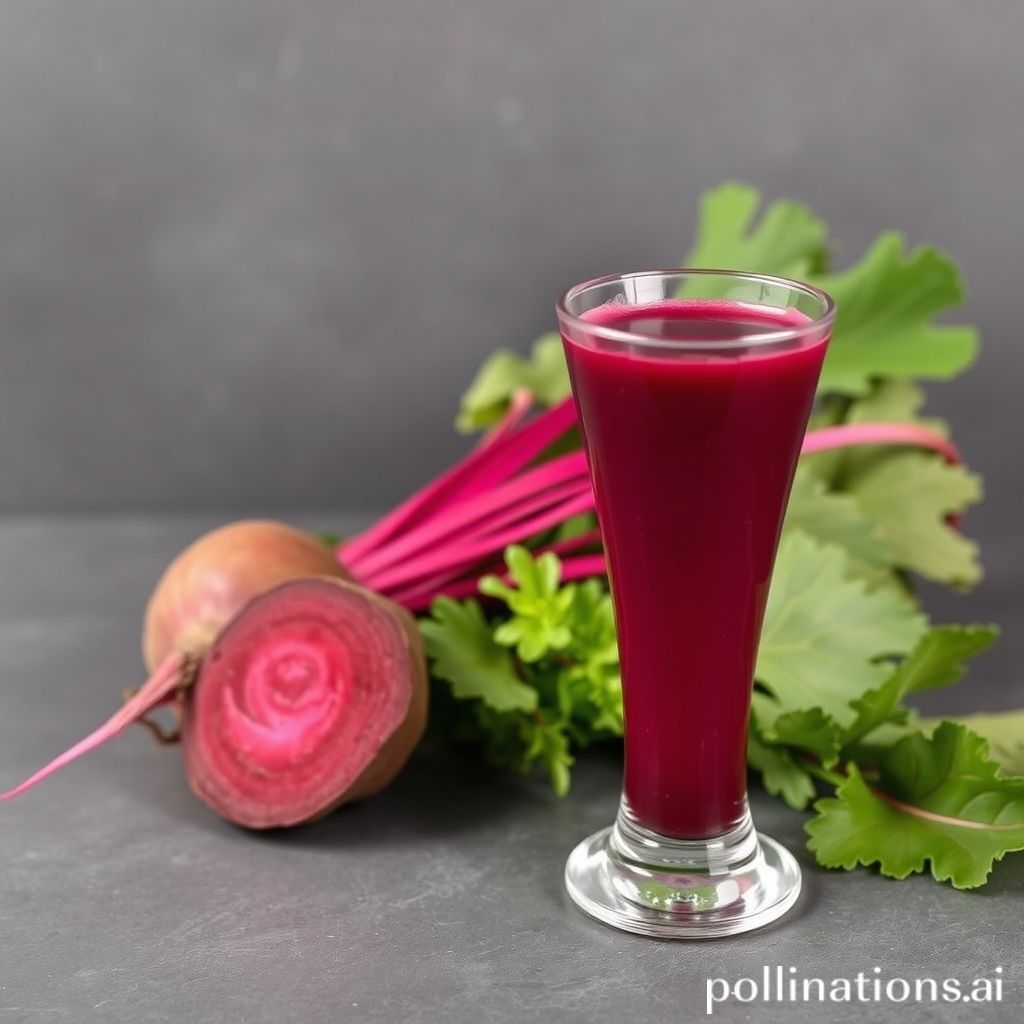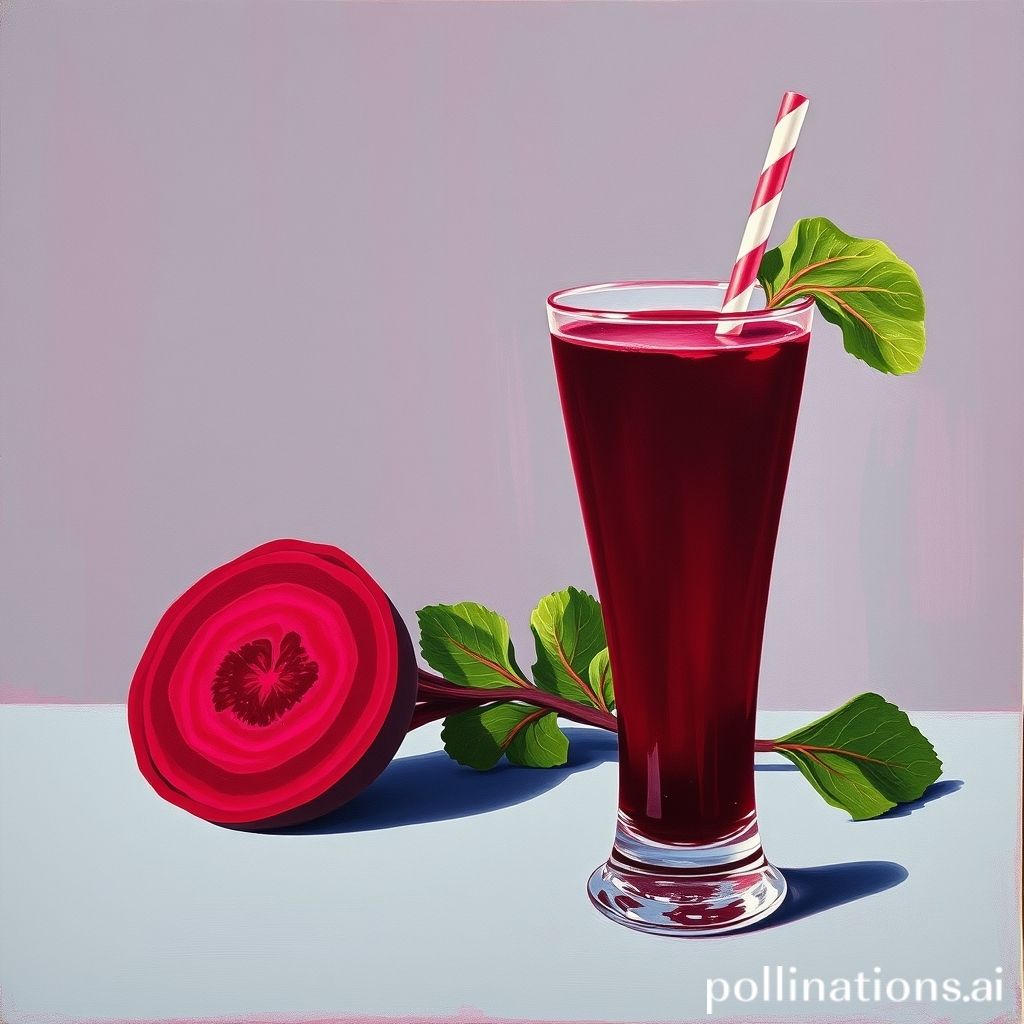Is Beetroot Juice Good For Skin?
[su_note note_color=”#fb8e00″ text_color=”#000000″ radius=”12″]
Beetroot juice has gained popularity as a potential elixir for improving skin health. Many individuals are curious to know whether consuming this vibrant juice can have positive effects on the appearance and overall well-being of their skin.
They also seek answers regarding its potential benefits in addressing common skin concerns like acne, wrinkles, and dullness. Additionally, people are interested in learning about any possible side effects or precautions they should be aware of when incorporating beetroot juice into their skincare routine. In this article, we will explore the potential benefits of beetroot juice for skin health, as well as any considerations to keep in mind.
[su_box title=”
[/su_box]

Nutritional Profile of Beetroot Juice
1. High levels of antioxidants
Beetroot juice is rich in antioxidants, including vitamin C and beta-carotene. These antioxidants play a crucial role in maintaining skin health by protecting it from free radical damage. Free radicals are unstable molecules that can cause oxidative stress, leading to premature aging of the skin.
By neutralizing these free radicals, antioxidants in beetroot juice help reduce the appearance of wrinkles, fine lines, and other signs of aging. Regular consumption of beetroot juice can provide a natural source of antioxidants, contributing to a healthier and more youthful-looking complexion.
2. Essential vitamins and minerals found in beetroot juice
In addition to antioxidants, beetroot juice is also packed with essential vitamins and minerals that benefit the skin. It contains vitamins A, C, and E, which are known for their skin-nourishing properties.
Vitamin A promotes the production of collagen, a protein that gives the skin its elasticity and firmness. It also aids in cell renewal, resulting in a smoother and clearer complexion. Vitamin C is vital for collagen synthesis and protects the skin against environmental damage. Vitamin E acts as a powerful antioxidant, moisturizing the skin and maintaining its natural barrier.
Furthermore, beetroot juice is a good source of minerals like potassium, magnesium, and iron. These minerals improve blood circulation, enhance cell regeneration, and promote a healthy glow, ultimately supporting overall skin health.
Incorporating beetroot juice into your diet can provide your skin with these essential vitamins and minerals, contributing to a healthier and more radiant appearance.
[su_highlight background=”#f6b40f”]Expert Tips:
1. Boost your skin’s health and youthfulness by drinking antioxidant-rich beetroot juice daily.
2. Get essential vitamins A, C, and E for skin nourishment and collagen production from beetroot juice.
3. Improve blood circulation, cell regeneration, and achieve a healthy glow with the minerals in beetroot juice.[/su_highlight]
Effect of Beetroot Juice on Acne
1. Reduction of Inflammation
Beetroot juice contains antioxidants that can help reduce inflammation, a common trigger for acne breakouts. These antioxidants, such as betalains and vitamin C, possess anti-inflammatory properties. They can help decrease redness and swelling associated with acne.
2. Balancing Hormones
Hormonal imbalance is a potential factor contributing to acne. Research suggests that beetroot juice may play a role in balancing hormones, leading to a reduction in acne breakouts. The phytochemicals present in beetroot juice, including betacyanin, have hormone-regulating properties. This can result in fewer hormonal fluctuations and, consequently, a decrease in acne breakouts.
| Potential Benefits | Precautions |
|---|---|
|
|
At the same time beetroot juice shows promise in improving acne-prone skin, it is important to note that results may vary among individuals. It is always recommended to consult with a healthcare professional or dermatologist before making significant changes to your skincare routine or diet.
Incorporating beetroot juice into your diet, along with a well-rounded skincare regimen, may contribute to overall skin health. Although, it is essential to maintain a balanced diet and practice good skincare habits to achieve optimal results.
Impact of Beetroot Juice on Wrinkles
1. Antioxidants in beetroot juice may help fight free radicals and prevent wrinkles
Beetroot juice is rich in antioxidants, such as vitamin C and beta-carotene, which have anti-aging properties. These antioxidants combat free radicals, which can damage skin cells and cause wrinkles.
Regular consumption of beetroot juice increases antioxidant levels in the body, providing protection against oxidative stress and reducing the risk of wrinkles.
2. The role of betalains in promoting youthful skin
Betalains are pigments found in beetroot that give it its vibrant red color. These compounds offer several skincare benefits.
- Enhanced collagen production: Betalains stimulate collagen production, which improves skin structure and elasticity, resulting in a more youthful appearance.
- Improved skin hydration: Beetroot juice’s betalains improve the skin’s ability to retain moisture, helping to plump the skin and reduce the visibility of fine lines and wrinkles.
- Reduced inflammation: Inflammation contributes to skin aging and the formation of wrinkles. Betalains have anti-inflammatory properties that soothe and calm the skin, reducing redness and irritation.

Beetroot Juice for Dull Skin
1. Improved Blood Circulation and Natural Glow
Beetroot juice can improve blood circulation, which positively affects the health and appearance of the skin. The high concentration of nitrates in beetroot juice helps dilate blood vessels, allowing for better blood flow throughout the body, including the skin. This increased blood flow delivers essential nutrients and oxygen to the skin cells, resulting in a natural glow.
2. Nitrates and Skin Health
Nitrates, found abundantly in beetroot juice, enhance skin health and radiance. They improve the production of nitric oxide in the body, which relaxes blood vessels and promotes healthy blood flow. Efficient blood circulation, thanks to nitrates, contributes to improved skin complexion, reduced dullness, and a youthful appearance.
In addition, beetroot juice’s antioxidant properties benefit the skin. The presence of betalains, natural pigments responsible for the vibrant color of beetroots, neutralizes harmful free radicals and protects the skin from oxidative stress. This prevents premature aging, reduces the appearance of wrinkles, and maintains overall skin health.
It’s important to note that individual results may vary when using beetroot juice for dull skin. It is advisable to consult with a healthcare professional or dermatologist before making significant changes to your diet or skincare routine. Additionally, moderation is key when consuming beetroot juice, as excessive intake may temporarily discolor urine or cause other mild side effects.
| Benefits of Beetroot Juice for Dull Skin: |
|---|
| Improved blood circulation for a natural glow |
| Enhanced skin health and radiance through the role of nitrates |
| Antioxidant properties to protect against oxidative stress |
| Reduced appearance of wrinkles and signs of aging |
[su_note note_color=”#ea2e0c” text_color=”#ffffff” radius=”8″]Extra Tips: Discover the natural glow and radiant skin benefits of beetroot juice, but consult a professional and consume in moderation.[/su_note]
Potential Side Effects and Precautions
1. Possible Allergic Reactions to Beetroot Juice
Although beetroot juice is generally safe to consume, some people may experience allergic reactions. Symptoms of an allergic reaction to beetroot juice may include itching, hives, swelling of the face or throat, and difficulty breathing. If you are allergic to beets or other foods in the same family, such as spinach or chard, it is advisable to avoid beetroot juice or consult a healthcare professional before adding it to your diet.
2. Staining of Urine and Stools
A common side effect of consuming beetroot juice is the presence of red or pink discoloration in urine and stools. This condition, known as beeturia, is harmless. Despite this, it may be alarming for individuals who are unaware of this effect. If you notice this discoloration after consuming beetroot juice, there is no need to worry. It is simply a result of the pigments present in beets and should go away on its own.
3. Interactions with Certain Medications
Beetroot juice contains compounds that may interact with certain medications. For instance, beetroot juice is high in nitrates, which can lower blood pressure. If you are taking medication for high blood pressure or other cardiovascular conditions, it is important to consult your healthcare provider before consuming large quantities of beetroot juice. Additionally, beetroot juice may also interact with medications metabolized by the liver, such as certain antibiotics or antihistamines. It is always best to check with your healthcare professional regarding any potential interactions between beetroot juice and your current medications.
It is important to note that In the course of beetroot juice has numerous potential benefits for skin health, it is not a magical solution for all skin issues. It should be used as part of a well-rounded skincare routine, which includes a healthy diet, proper hydration, and a consistent skincare regimen. If you have specific concerns about your skin, it is recommended to consult a dermatologist for personalized advice.
Conclusion
Consuming beetroot juice can be beneficial for skin health, as it is rich in essential nutrients and antioxidants. Regular intake of beetroot juice can help improve the health and appearance of the skin by reducing acne, wrinkles, and dullness.
In contrast, it is important to note that individual results may vary, and it is always advisable to consult a healthcare professional before making any major dietary changes. Incorporating beetroot juice into a balanced diet, along with other healthy habits, can contribute to overall skin improvement. So, why not give beetroot juice a try and see the positive impact it can have on your skin’s health?
FAQ: Is Beetroot Juice Good For Skin?
FAQ 1: Can beetroot juice alone improve skin health?
Yes, beetroot juice can improve skin health. It is rich in antioxidants like vitamin C and beta-carotene, which help reduce oxidative stress and promote a healthy complexion. The high iron content in beetroot juice also supports the production of healthy red blood cells, improving blood circulation and nourishing the skin.
FAQ 2: How much beetroot juice should I consume for visible skin improvement?
To experience visible skin improvement, it is recommended to consume around 1 cup (250 ml) of beetroot juice per day. Notwithstanding, individual results may vary, so it’s best to start with a smaller amount and gradually increase it based on your body’s response.
FAQ 3: Are there any alternatives to beetroot juice for skin health?
Yes, if you’re looking for alternatives to beetroot juice, other fruits and vegetables can also improve skin health. Examples include pomegranate juice, carrot juice, tomato juice, and green tea. These alternatives are also rich in antioxidants and other beneficial compounds that promote skin health.
FAQ 4: Can beetroot juice help with other skin conditions such as eczema?
At the same time beetroot juice can provide some benefits for the skin, it may not specifically target and treat eczema. Eczema is a complex condition that requires a comprehensive treatment plan, including medical guidance. It’s best to consult a dermatologist for specific recommendations on managing eczema.
FAQ 5: Can applying beetroot juice topically have the same effects as consuming it?
Applying beetroot juice topically may provide some benefits for the skin, such as hydration and a temporary glow. Notwithstanding, the effects may not be as pronounced or long-lasting as consuming beetroot juice internally. To maximize the benefits, it is recommended to include beetroot juice in your diet along with applying a well-rounded skincare routine.
Read Similar Post:
1. Is Beetroot Juice a Healthy Option? Unveiling the Truth About Sugar Content
2. Do You Really Need to Peel Beets? The Truth about Beet Skins
